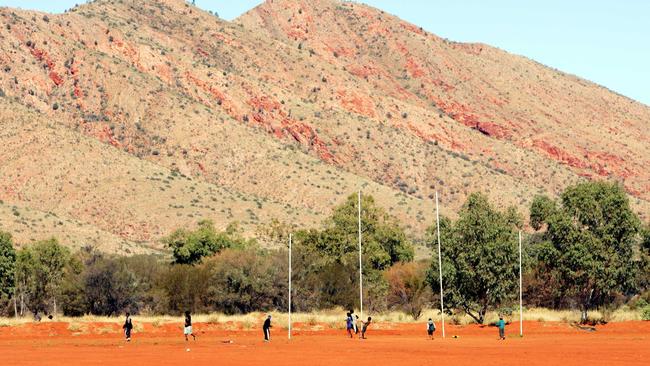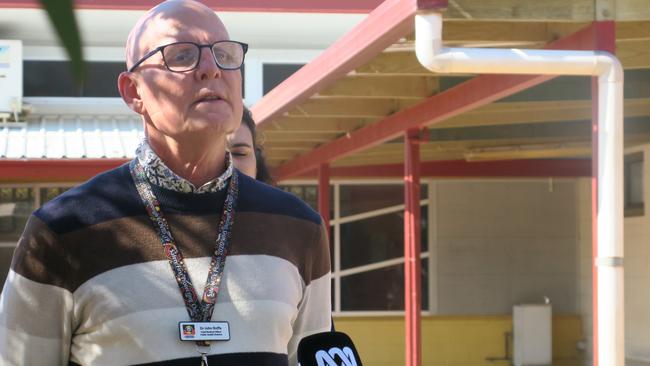Central Australian Aboriginal Congress takes over Kaltukatjara Health Centre
Congress has assumed operation of its third remote health centre this year despite struggling with worker shortages. Read what impact it will have on the community here.
Northern Territory
Don't miss out on the headlines from Northern Territory. Followed categories will be added to My News.
The Central Australian Aboriginal Congress has assumed operations of the Kaltukatjara (Docker River) Health Centre, increasing its network of remote services despite continuing to struggle with staff shortages.
As the largest Aboriginal community controlled health service in the Territory, congress operates clinics across the Territory including Amoonguna, Ntaria, Ltyentye Apurte (Santa Teresa), Utju (Areyonga), Mutitjulu, Imanpa and Yulara.
Congress acting chief executive officer David Busuttil said the “milestone” transition shows how far Congress and Aboriginal community controlled healthcare had come.
“It makes us very proud that the people of Kaltukatjara have welcomed Congress into their community, and we look forward to working with and for them,” he said.

Chief Minister Natasha Fyles said the government had committed to providing more opportunities to transfer government service delivery to Aboriginal people.
“The movement towards increased Aboriginal control of health services in the NT is motivated by two main factors — a commitment to Indigenous rights and international evidence showing better health outcomes when there is community participation in health care delivery,” she said.
“Congress and NT Health have worked in partnership to transition operations to Aboriginal community control in Kaltukatjara in line with community needs and local decision making. “NT Health will continue to provide support in the community, including visiting specialist services such as paediatrics and BreastScreen NT.”

The takeover follows Congress chief medical officer Dr John Boffa declaring the primary healthcare worker shortage in rural and remote NT had reached “breaking point” in March.
“The critical shortage of doctors, nurses, Aboriginal health practitioners, allied health and other staff has forced Congress to temporarily close one of our Alice Springs clinics, as we prioritise keeping our remote clinics open,” he said.
“This situation is unacceptable and urgent action is needed.”
However, according to Congress’ own June Board Communique the healthcare service is continuing to be significantly impacted by a reduction in GP Registrars and other health professionals.
“Health services throughout Australia are finding it hard to find health professionals and unfortunately this includes Congress,” it said.
“Unfortunately, given the number of vacancies in clinical positions, Congress’ Northside Clinic will continue to remain closed for the foreseeable future.”




